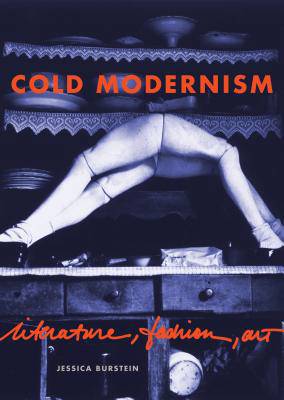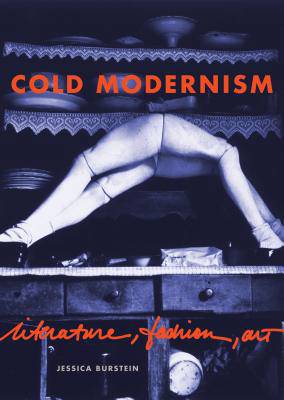
- Retrait gratuit dans votre magasin Club
- 7.000.000 titres dans notre catalogue
- Payer en toute sécurité
- Toujours un magasin près de chez vous
- Retrait gratuit dans votre magasin Club
- 7.000.0000 titres dans notre catalogue
- Payer en toute sécurité
- Toujours un magasin près de chez vous
Description
In Cold Modernism, Jessica Burstein explores various cultural facets of modernism, tying them into a fresh conceptual framework. Central to her analysis is the important premise that our current understanding of modernism is fundamentally incomplete. Reacting against "hot," libidinous, and psychology-centered modernism, Burstein asserts that "a constellation of modernist sensibility" has been left unacknowledged, one that laid the essential groundwork for postmodernism.
In her wide-ranging discussion of fiction, poetry, art, and fashion, Burstein sets up the parameters of what she calls "cold modernism." According to Burstein, cold modernism operates on the premise that "there is a world in which the mind does not exist, let alone matter"; it runs counter to the "tropical bodies" of Virginia Woolf and D. H. Lawrence. Basing the core of her analysis on the written works of Wyndham Lewis, Burstein views varying disciplines within modernism through the lens of their human interest, focusing on the "coldest" works that convey the mechanical and inhuman. In these works, she contends, the role of the self is nonexistent, and the individual mind is merely a physical fact.
Cold Modernism raises questions fundamental to the understanding of modernist and postmodernist written and visual culture and is destined to become essential reading in the field.
Spécifications
Parties prenantes
- Auteur(s) :
- Editeur:
Contenu
- Nombre de pages :
- 336
- Langue:
- Anglais
- Collection :
- Tome:
- n° 17
Caractéristiques
- EAN:
- 9780271053769
- Date de parution :
- 15-08-12
- Format:
- Livre broché
- Format numérique:
- Trade paperback (VS)
- Dimensions :
- 175 mm x 246 mm
- Poids :
- 929 g

Les avis
Nous publions uniquement les avis qui respectent les conditions requises. Consultez nos conditions pour les avis.






